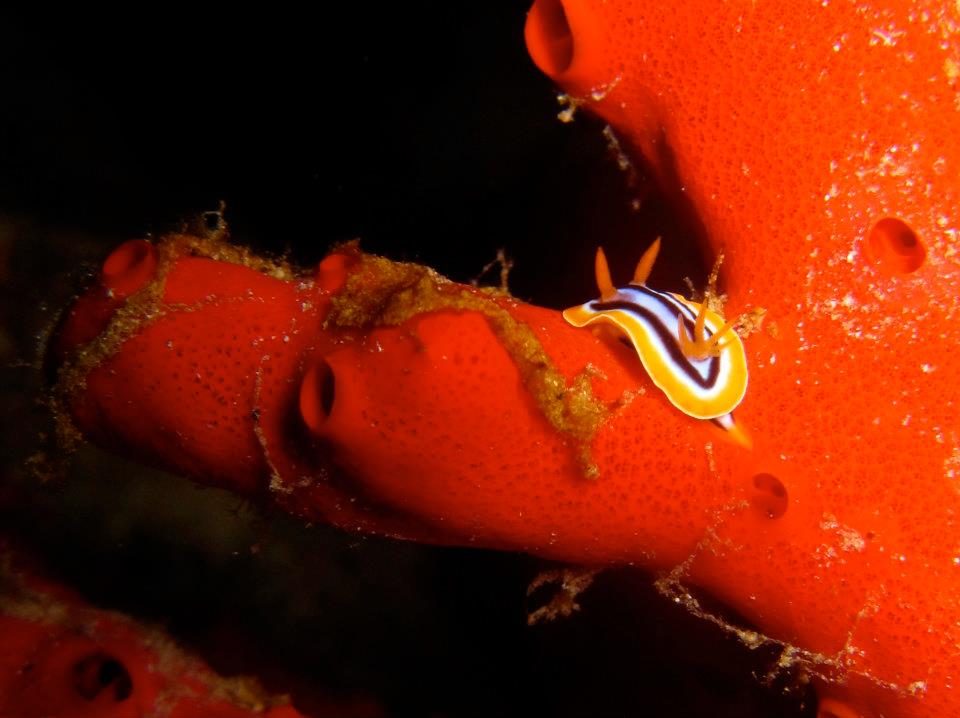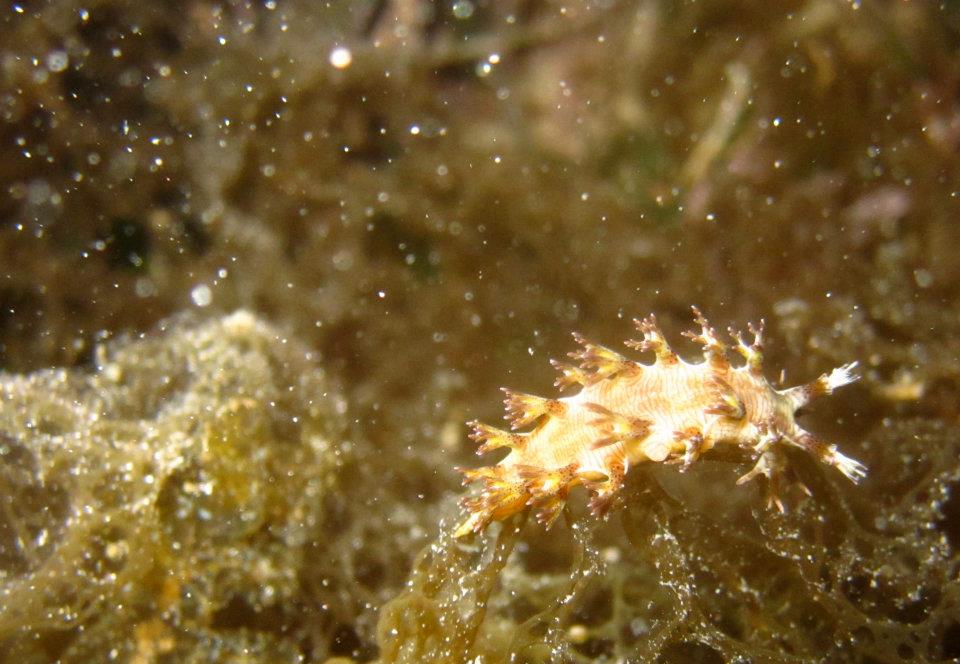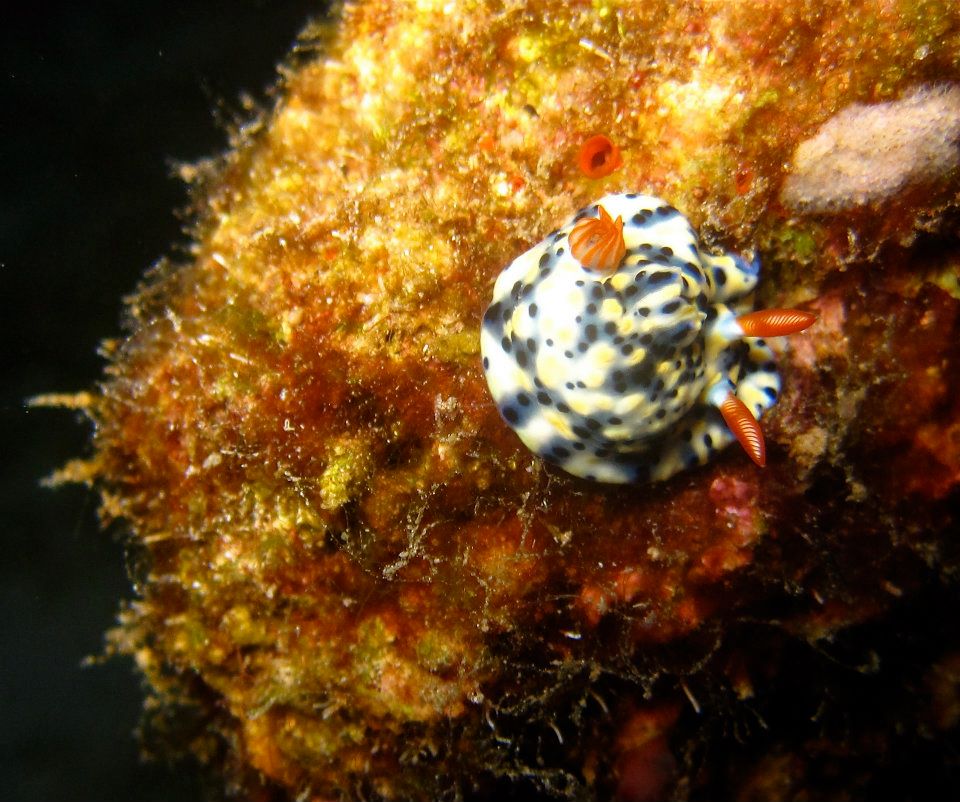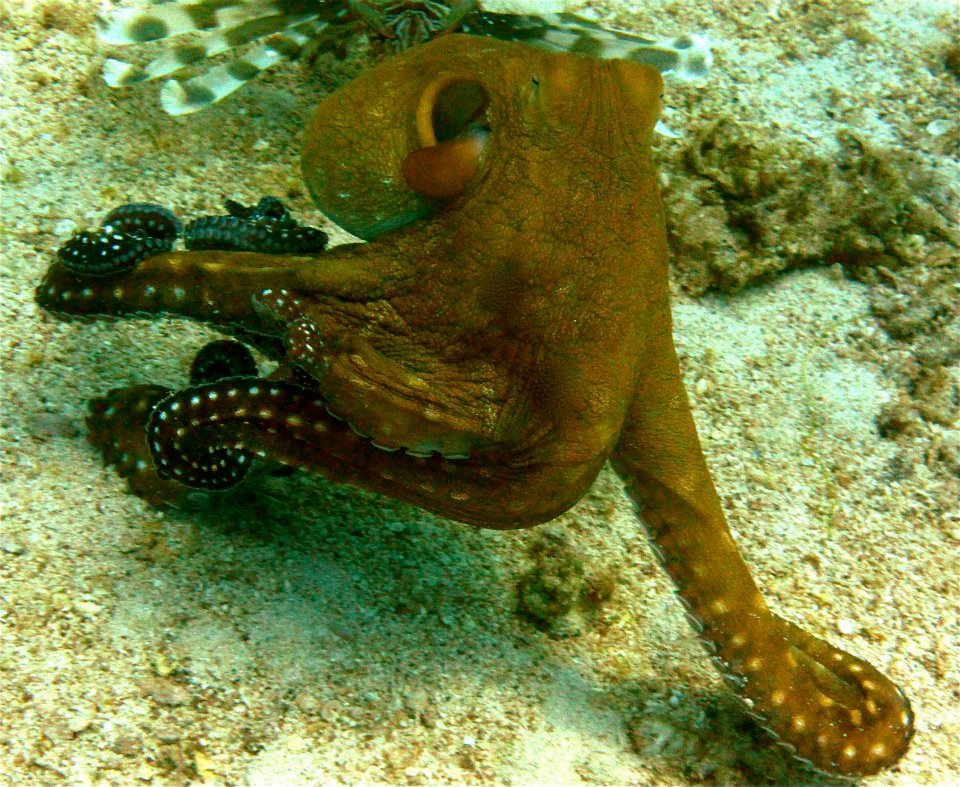The city of Eilat, Israel's southernmost outpost, squats at the center of some seriously volatile geography. To the south, Egypt's border bristles with machine gun-toting soldiers; in the east loom the rust-colored Edom Mountains of Jordan; across the Red Sea, you can make out Saudi Arabia on a cloudless day. Eilat is at once a resort town and a target: last year, militants in Sinai fired rockets into the city, and in 2011, Gazan terrorists killed eight civilians aboard a bus, prompting Israel to retaliate with brutal airstrikes.
But for a small, ocean-loving subset of visitors, this dusty corner of the Middle East is renowned for more than political turmoil. Every year, from February to May, the coral reef off Eilat's coast is an unparalleled place to spot some of the planet's strangest, most beautiful animals: nudibranchs, or tiny, jewel-like sea slugs, each more exotic than the last. And while the words "sea slug" probably don't ignite your imagination like "great white shark" or "blue whale," there may not be more spectacular critters in the entire ocean.

That's why I'm shivering in a wetsuit a few hours after sundown, my flashlight beam groping the pebbled seafloor as my dive partner and I descend through darkness. Shulamit Koretz, a local dive shop owner and among the region's best slug hunters, kicks in front of us. Soon the bottom turns weedy, and the slugs start to emerge -- radiant golden sea hares the size of ping-pong balls; speckled black beauties with bright red feelers; diaphanous nudibranchs with branching appendages. It's a true slug bonanza, far greater and weirder than any congregation I've ever seen.

Lest we think that all sea slugs are tiny, Koretz finds one last oddity -- a huge, purple sidegill slug, nearly large enough to wrap its fleshy mantle around our heads. We stare, fixated, until our air runs low and we have to surface.
We bundle our shivering selves into Koretz's battered van and clatter back toward her shop. As we drive, she recaps the dive, tongue-twisting Latin names rolling off her tongue. "Yes, the Pleurobranchus grandis, that was quite nice," she enthuses, her English tipped with competing German and Hebrew accents. "And to see the Hypselodoris..." She nods blissfully. "Just wonderful."

In Eilat, a city rife with industrial-sized dive shops staffed by young backpackers, Koretz's graying hair and boutique operation are as unusual as the rarest of sidegill slugs. Her story, too, is unconventional: born in Germany, she moved to Israel in her youth, and spent years working first as a historian and then as an international book distributor near Jerusalem.
When Koretz and her husband, Binyamin, finally moved to Eilat in 2001, they found a diving industry dominated by big, impersonal dive shops whose lack of environmental awareness was destroying Eilat's reefs: According to one study, divers were committing an estimated 400,000 instances of coral damage each year. The reef was being bombarded by poorly trained, under-supervised divers with little regard for the health of the ecosystem.
Eager to promote a new diving culture in Eilat, the former historian and bookseller decided to open a dive shop. And so emerged Shulamit's Eilat Diving Adventures, a deliberately small outfit oriented around the owner's warm, maternal attention and ecological knowledge.
That Koretz's shop has been successful isn't too surprising. That two non-scientists now rank among the Red Sea's leading self-taught slug experts? Well, that one might raise a few eyebrows. Yet Koretz and Binyamin have become Eilat's go-to nudibranch authorities, oft-consulted by visiting researchers. Their photographs, many of which have appeared in scientific textbooks, have documented over 160 species of slugs -- and those are just the ones known to science. "We've seen many species of nudibranchs that are unidentified," Koretz claims, "but we couldn't bring ourselves to kill them for scientific collection."
Encouragingly, says Koretz, Eilat's dive sites are in better shape than they were a decade ago, when researchers warned that the status quo would lead to ruin. For the turnaround, Shulamit credits the Coral Beach Marine Reserve, a protected area surrounding a 1,200 meter-long reef in which divers are prohibited from approaching fragile corals. The gunships that patrol nearby waters serve not only as reminders of Israel's vulnerability and hyper-militarism, but also a powerful inducement to avoid carelessly kicking coral heads.
Twenty meters below the light surf of the Red Sea, it is hard to believe that such a thing as international turmoil exists, let alone that its epicenter is practically above our heads. We are diving now during the day, within the confines of the Marine Reserve, and though the slugs have retreated until nightfall, the rest of the reef's residents are out in force. An octopus, its puckered skin flashing from green to brown, emerges from a nook to rustle up prey buried in the sand, its flailing arms somehow comically awkward and elegant at the same time.
The octopus is feeding, perhaps, on some of the same slugs we saw the previous night, their boneless bodies no match for the cechalopod's hard beak. Like all creatures, sea slugs are, in the end, calories that sustain other, equally extraordinary life forms. But if there's more beautiful prey in the ocean, I'd like to see it.
